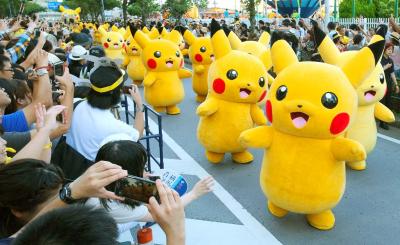Guinea has agreed to send hundreds of troops to Somalia to bolster the African Union’s peacekeeping force in the country after Somali insurgents claimed responsibility for blowing up nightspots in Uganda during the World Cup, killing 76 people.
The announcement, made on Friday, came during the 15th African Union summit meeting in Kampala, the normally peaceful Ugandan capital, which was deeply shaken by the bombings last week.
More than 50 heads of state are expected to attend the meeting, whose theme is maternal and child health and development in Africa. The attacks have threatened to overshadow the gathering, and the troop announcement offered an early indication of how the African Union intended to respond to the deadliest strike by Somali insurgents on a neighboring country.
The troops from Guinea — a battalion in all — are expected to join a separate force from Djibouti, making for the mission’s first deployments from predominantly Muslim countries. Jean Ping, chairman of the African Union Commission, called the new troops a “major boost” for the peacekeeping force in Somalia, and said it could push the number of soldiers on the ground to close to 10,000.
The Shabab, Islamist insurgents who control much of Somalia, said the World Cup attacks in Kampala were retaliation for the involvement of Ugandan troops as the backbone of the African Union peacekeeping force in Somalia.
The peacekeeping mission has been there since 2007, helping to prop up a Western-backed transitional government that would almost certainly fall without the outside support.
The insurgents have been enforcing their harsh version of Islam in Somalia — banning music, bras and soccer — and have been fanning a religious war against the peacekeepers from Uganda and Burundi, two predominantly Christian nations.
The Shabab have at times called the peacekeepers infidels and accuse the Ugandan troops of committing crimes against Somali civilians. The African Union has been widely criticized as shelling residential areas indiscriminately.
Since Guinea and Djibouti are predominantly Muslim nations, the choice to send their troops to Somalia may have been an attempt to help neutralize tension.
“We welcome them,” Felix Kuliagye, a Ugandan military spokesman said. “Religion plays a key in acceptability.”
The African Union summit meeting in Kampala is still officially supposed to focus on maternal health and public policy.
African Union member states pledged in 2001 to increase healthcare spending to 15 percent of their national budgets, but this year only three countries are expected to meet that goal, according to public health advocates.
Activists are using the attention of the meeting in Kampala to voice their concerns by staging mock debates, perhaps the first at an African Union summit meeting and a testament to the region’s passionate and creative civil society.
But in this city, now besieged by security forces, the original focus of the conference may be lost.
“We are calling on leaders to be serious this time,” said Beatrice Were, a South African public health advocate.
“Look at how they react to the terrorist attacks here in Kampala. Our leaders should act the same way towards AIDS,” she said.

China’s military news agency yesterday warned that Japanese militarism is infiltrating society through series such as Pokemon and Detective Conan, after recent controversies involving events at sensitive sites. In recent days, anime conventions throughout China have reportedly banned participants from dressing as characters from Pokemon or Detective Conan and prohibited sales of related products. China Military Online yesterday posted an article titled “Their schemes — beware the infiltration of Japanese militarism in culture and sports.” The article referenced recent controversies around the popular anime series Pokemon, Detective Conan and My Hero Academia, saying that “the evil influence of Japanese militarism lives on in

ANTI-SEMITISM: Some newsletters promote hateful ideas such as white supremacy and Holocaust denial, with one describing Adolf Hitler as ‘one of the greatest men of all time’ The global publishing platform Substack is generating revenue from newsletters that promote virulent Nazi ideology, white supremacy and anti-Semitism, a Guardian investigation has found. The platform, which says it has about 50 million users worldwide, allows members of the public to self-publish articles and charge for premium content. Substack takes about 10 percent of the revenue the newsletters make. About 5 million people pay for access to newsletters on its platform. Among them are newsletters that openly promote racist ideology. One, called NatSocToday, which has 2,800 subscribers, charges US$80 for an annual subscription, although most of its posts are available

GLORY FACADE: Residents are fighting the church’s plan to build a large flight of steps and a square that would entail destroying up to two blocks of homes Barcelona’s eternally unfinished Basilica de la Sagrada Familia has grown to become the world’s tallest church, but a conflict with residents threatens to delay the finish date for the monument designed more than 140 years ago. Swathed in scaffolding on a platform 54m above the ground, an enormous stone slab is being prepared to complete the cross of the central Jesus Christ tower. A huge yellow crane is to bring it up to the summit, which will stand at 172.5m and has snatched the record as the world’s tallest church from Germany’s Ulm Minster. The basilica’s peak will deliberately fall short of the

Venezuelan Nobel peace laureate Maria Corina Machado yesterday said that armed men “kidnapped” a close ally shortly after his release by authorities, following former Venezuelan president Nicolas Maduro’s capture. The country’s Public Prosecutor’s Office confirmed later yesterday that former National Assembly vice president Juan Pablo Guanipa, 61, was again taken into custody and was to be put under house arrest, arguing that he violated the conditions of his release. Guanipa would be placed under house arrest “in order to safeguard the criminal process,” the office said in a statement. The conditions of Guanipa’s release have yet to be made public. Machado claimed that